Augustin Derado
The INVENT consortium met for its fifth team meeting in Zadar, Croatia
In the period between October 6th and 8th, 2022, a team meeting of the INVENT project (European Inventory of Societal Values of Culture as a Basis for Inclusive Cultural Policies in the Globalizing World) was held in Zadar, Croatia. The project is supported by the European Commission’s Horizon 2020 programme. The meeting was organised by the Croatian partner in the
Cultural centres, sociability, and the societal value of culture
Socio-cultural centres, community centres, social centres, youth centres, creative centres… are among the many names of the cultural centre. So, what are the cultural centres, and why are they important for the societal value of culture? Cultural centres exist in many forms but are easily recognizable by their multifaceted and open character – think accessible places of many socio-cultural activities
Cultural policy as a meeting place of bottom-up and top-down approaches: Messages to cultural policy in Croatia based on the results of INVENT project
The importance of academic knowledge on the social aspects of culture is essential in the field of cultural policy. Nevertheless, insights of this kind are frequently neglected in the processes of devising national cultural policies in different European countries. In addition to broad EU policy frameworks, cultural policies of the nation states should include knowledge about how culture is seen
The precarity of the cultural sector: Should we reconsider the status of artists and cultural workers in Europe?
Across Europe, cultural sectors en large and the people working in fields related to art and culture were hit especially hard during the 2020 and 2021 COVID pandemic. Many cultural venues were closed, and programmes were cancelled (or weren’t initiated at all). Many artists and cultural workers fell deeper into precariousness and poverty than before COVID. Many were driven out
Reimagining Europe through culture: Should the EU place culture as one of its priorities?
Should we have a cultural deal for Europe and put culture as one of the top EU priorities? Many cultural professionals, scientists and policymakers think that European Union needs a deep and thorough reimagining of its cultural policies and that the matter is pressing. The growing precarity of the cultural sector in Europe presents an additional urgency to the issue.
Tourism and the Social Values of Culture
Croatian INVENT team co-leader Mirko Petrić participated in the online panel on sustainable cultural tourism, held on the occasion of the World Tourism Day, and organized by the Faculty of Economics, Business and Tourism in Split (Croatia) on October 21st, 2021. His presentation emphasized the importance of the societal values of culture, from a perspective developed within the INVENT project.
Creating culture – in poverty and precariousness? | International Art and Cultural Workers Congress 2021 (Zagreb, Croatia)
The prevalence of precarious working conditions in the sector of arts and culture across Europe were recently addressed by Art and Cultural Workers Congress, held in Zagreb between June 30th and July 2nd, 2021. The Congress brought together representatives of professional associations, initiatives, and trade unions active in promoting better working conditions for artists and cultural workers from seven European
INVENT approach to societal values of culture disseminated to teachers and cultural professionals during the summer of 2021 (Croatia)
Croatian INVENT team co-leader Mirko Petrić participated in two events during the summer months of 2021, in which he presented and highlighted some of the ideas which are central to the INVENT project agenda to teachers and cultural professionals. Petrić gave a presentation entitled “What are Cultural Resources? The importance of teaching for their sustainability” at a workshop “Why is
Cultural policy still neglected by (Croatian) politicians: an interview with Mirko Petrić
An interview with the Croatian INVENT team member Mirko Petrić about how political parties in his country view the societal role of culture was published in a major Croatian newspaper (and its associate news portal). The article was published on 5 June 2021, in the wake of the Croatian local elections, during the municipal and county council constitution period. In
Croatia’s participation in Creative Europe (2014-2020)
On the occasion of marking the end of the Creative Europe programme (2014 – 2020), the Croatian Desk of Creative Europe issued the publication “CREATIVE EUROPE (2014 – 2020): CROATIAN EXPERIENCES”. The bilingual (Croatian and English) publication offers a basic analysis of Croatia’s participation in the Creative Europe Culture sub-programme, providing the following highlighted information: Between 2014 and 2020, 96 Croatian

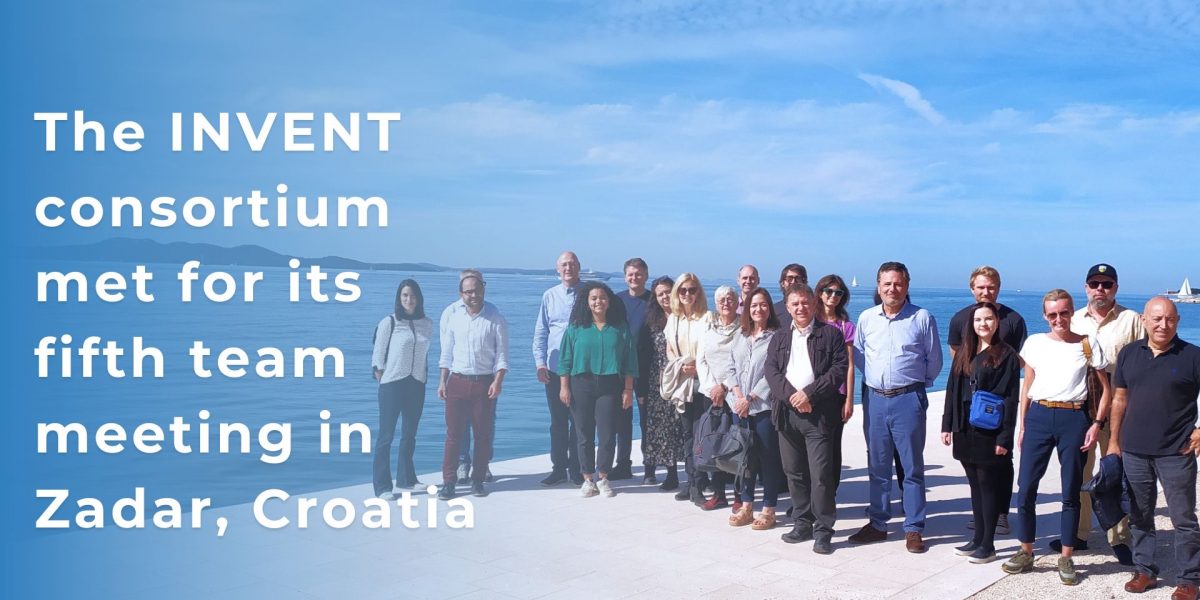
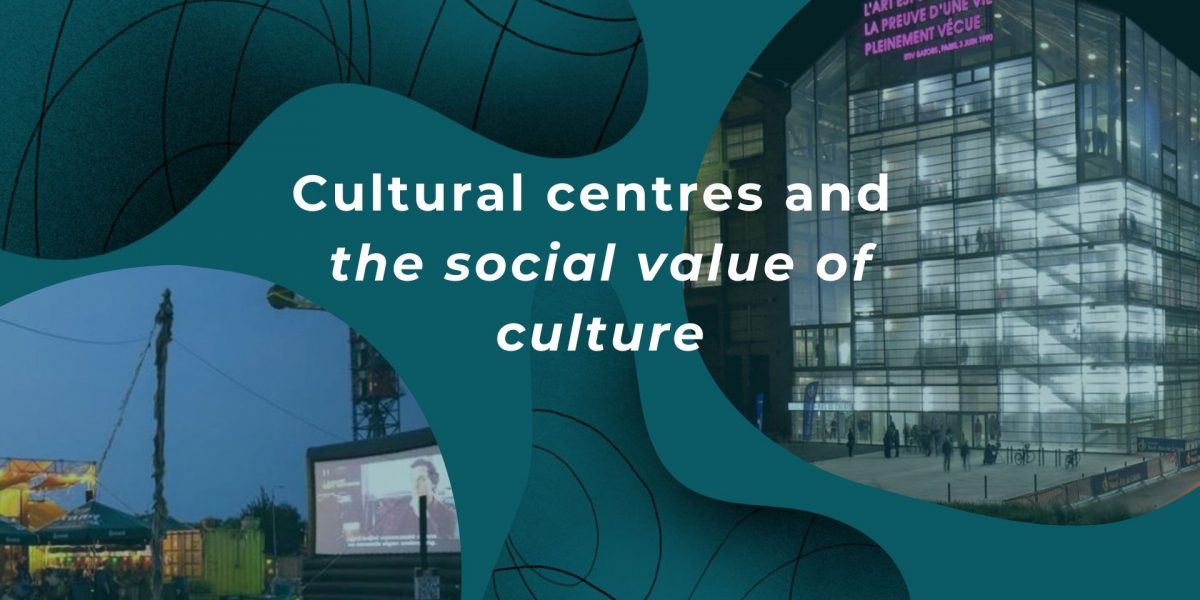
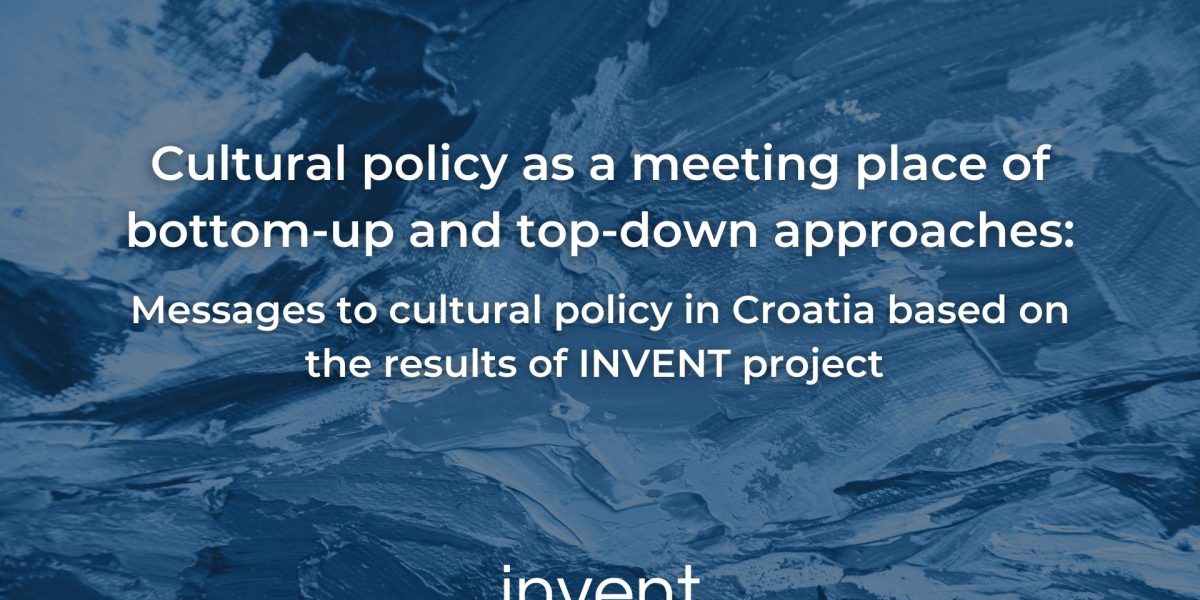
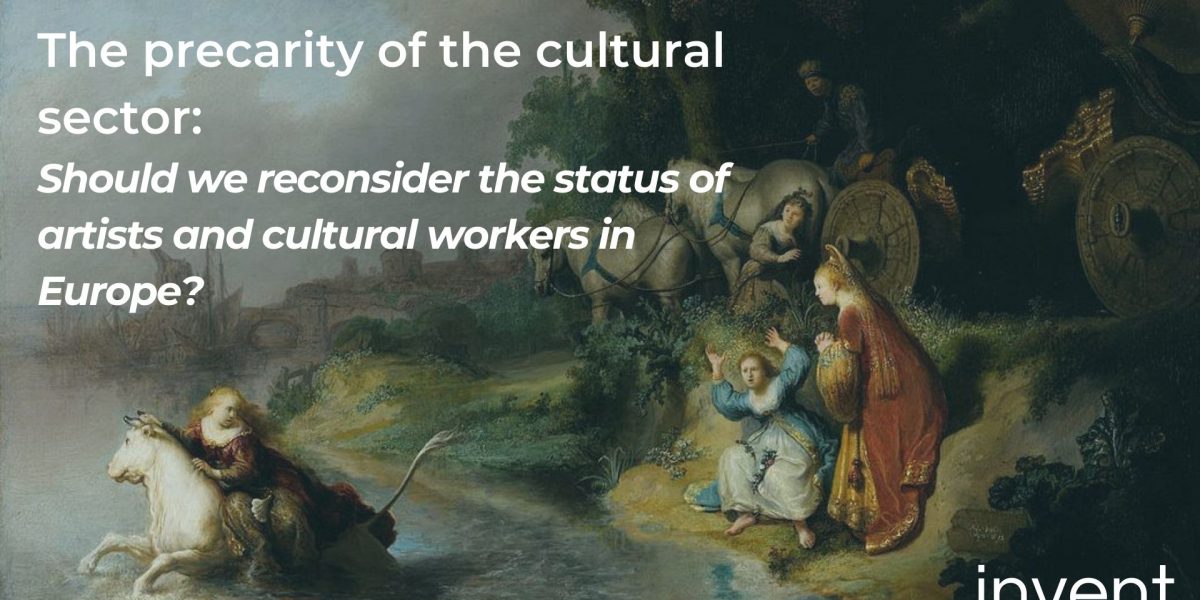
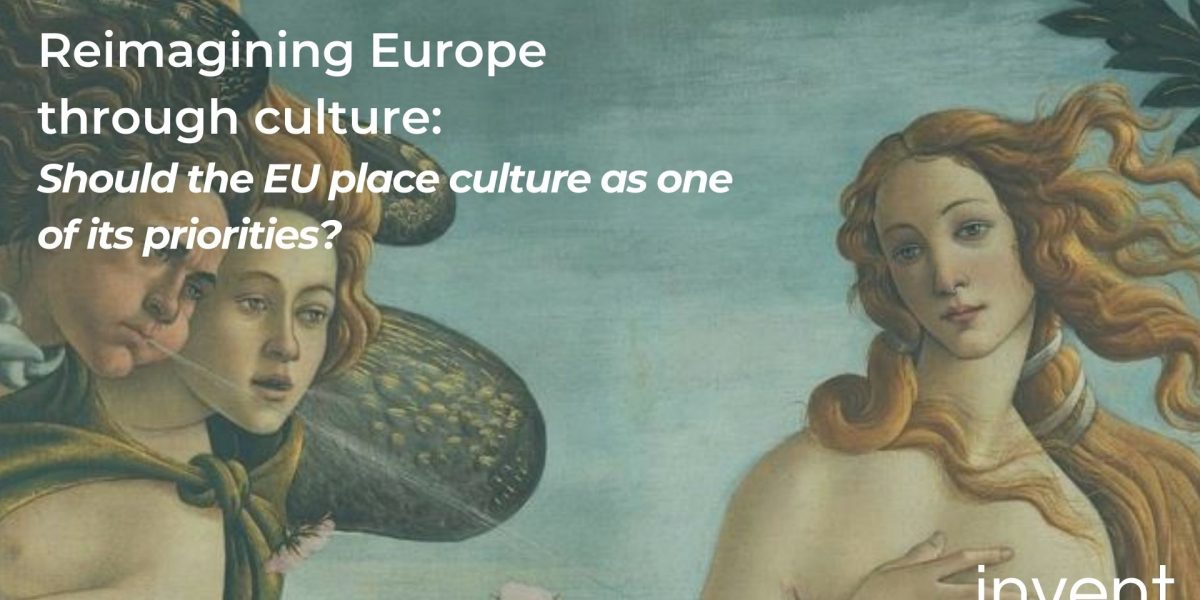
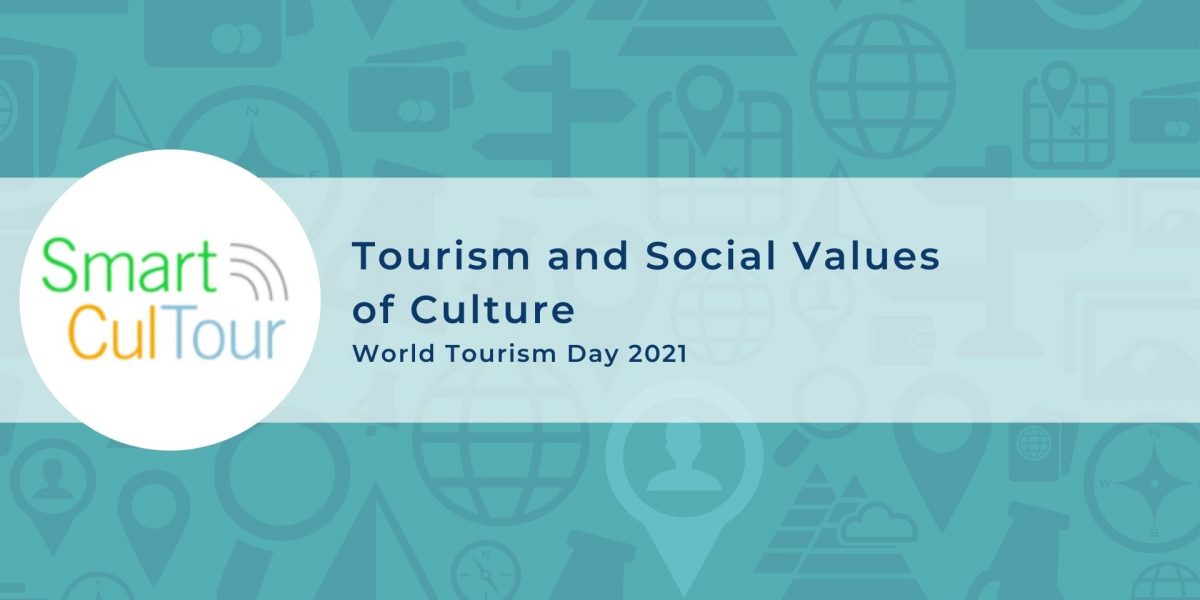
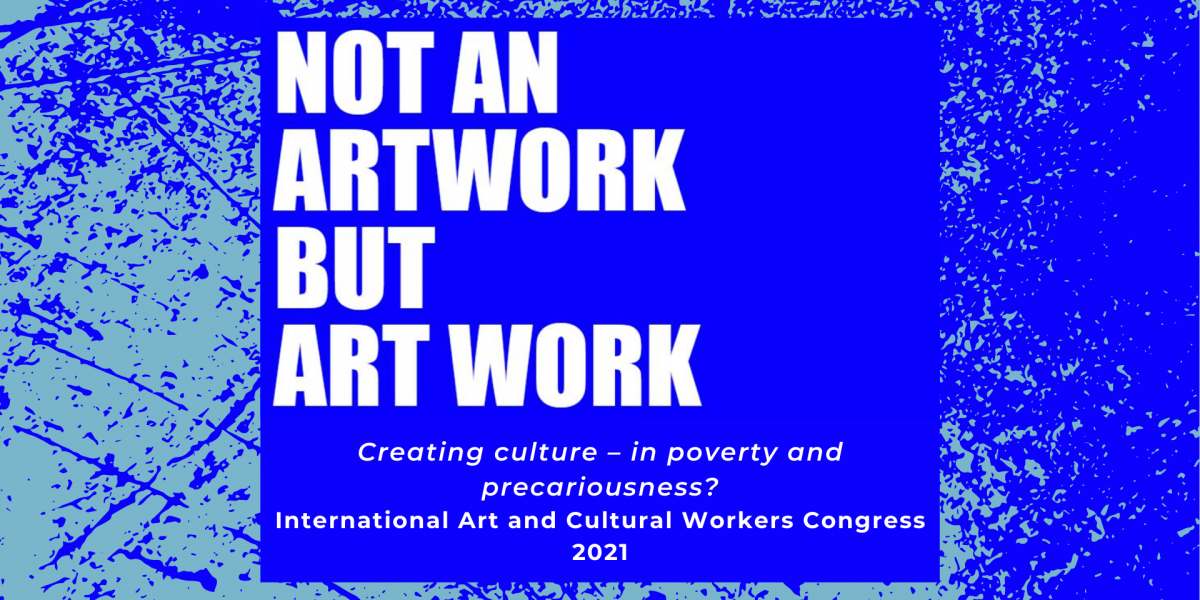
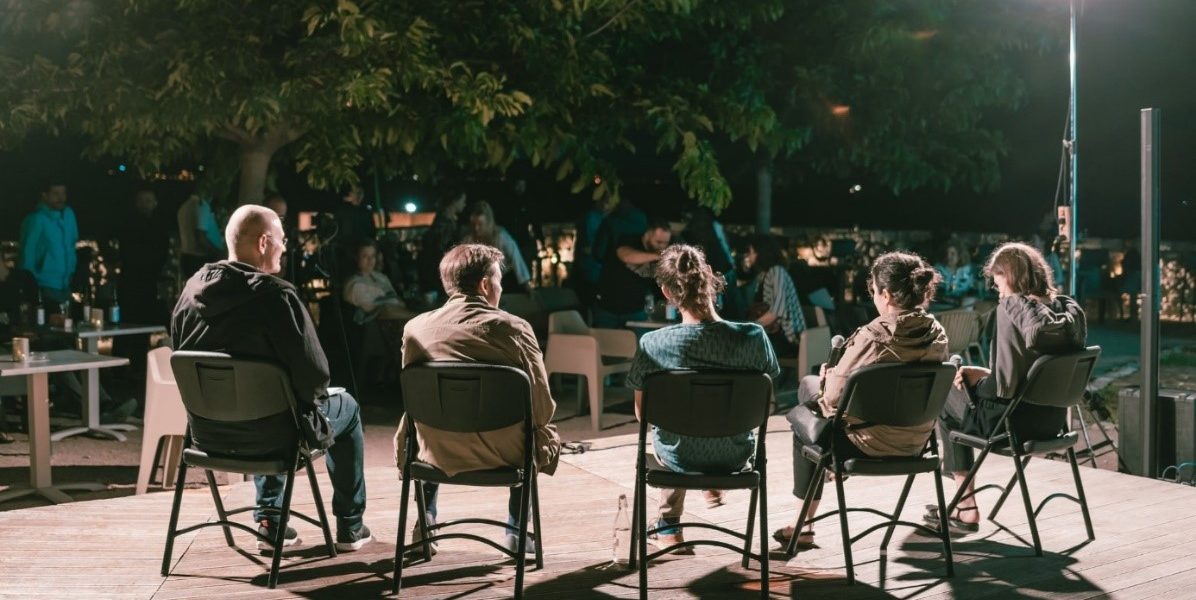
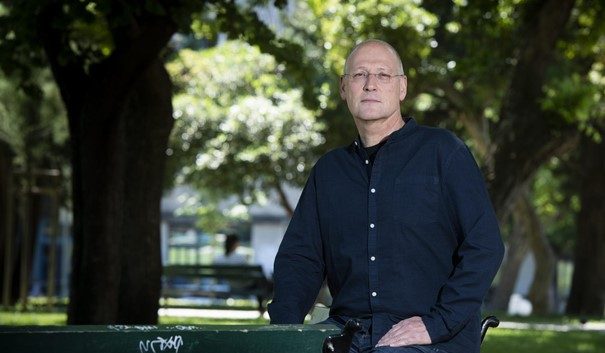
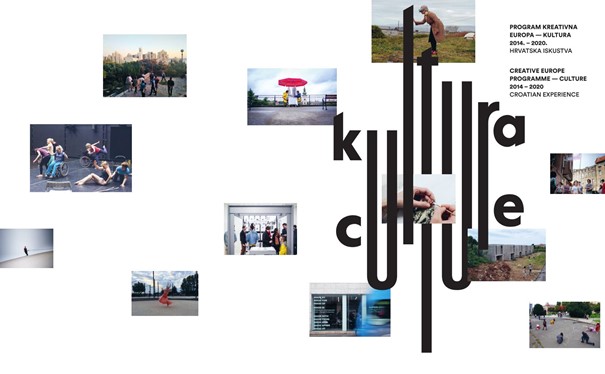

 This project has received funding from the European Union’s Horizon 2020 research and innovation programme under grant agreement No
This project has received funding from the European Union’s Horizon 2020 research and innovation programme under grant agreement No